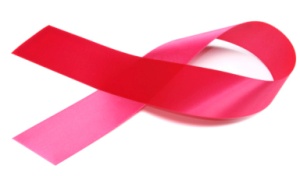 Researchers, auto workers, union reps and women's health advocates are meeting in Windsor, Ontario today to discussion the relationship between breast cancer and chemical exposures in the workplace.
Researchers, auto workers, union reps and women's health advocates are meeting in Windsor, Ontario today to discussion the relationship between breast cancer and chemical exposures in the workplace.
The Canadian National Network on Environments and Women’s Health (NNEWH), based at York University, has been concerned about the growing body of literature linking breast cancer and other diseases with environmental and occupational exposures, and has partnered with the CAW to bring together workers and researchers for the event, titled "Beyond Pink Ribbons."
“The environmental health movement for too long now has focused on women as consumers and women as mothers, ignoring the hazards women face from toxic substances in the workplace,” says Dayna Nadine Scott, director of NNEWH. “If we are serious about breast cancer prevention – we will change that”.
NNEWH is working with Windsor-based researchers James Brophy and Margaret Keith, who have been studying the health profiles of women working in the plastics sector of the auto industry in Windsor.
“As consumers we’ve been told that there are health concerns with the off-gassing of plastics in new cars. If these pose a risk to consumers, then what health impact might this have on the workers - mainly women- who manufacture these parts for our cars daily?” notes Keith.
“Our research on the possible links between plastics manufacturing and breast cancer risk has found that the typical plastics work environment is a toxic soup of solvents and plastics smoke, dust and vapours. This is worrisome because many of these chemicals are cancer-causing agents or hormone disrupters, and the workers in these manufacturing plants are exposed day-in and day-out. It’s the chronic nature of these exposures that creates a real worry.” adds Brophy.
Organizers say they hope the workshop will produce an outline of the issues and strategies for positive change that draw on experiences in other countries.
Workshop explores link between breast cancer, occupational chemical exposure
"Beyond Pink Ribbons"



